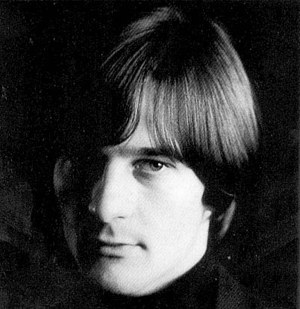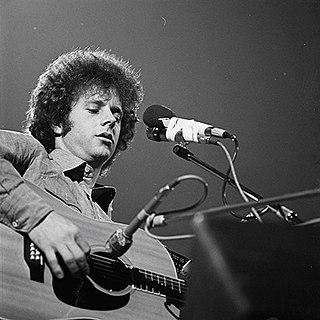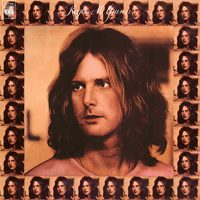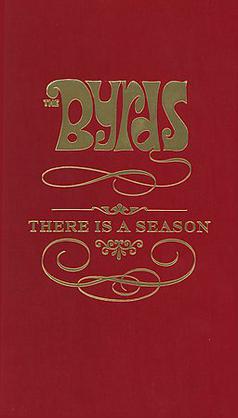
James Roger McGuinn is an American musician, best known for being the frontman and leader of the Byrds. He was inducted into the Rock and Roll Hall of Fame for his work with the Byrds. As a solo artist he has released 10 albums and collaborated with, among others, Bob Dylan, Tom Petty and Chris Hillman. The 12-string Rickenbacker guitar is his signature instrument.

The Byrds were an American rock band formed in Los Angeles, California, in 1964. The band underwent multiple lineup changes throughout its existence, with frontman Roger McGuinn remaining the sole consistent member. Although their time as one of the most popular groups in the world only lasted for a short period in the mid-1960s, the Byrds are considered by critics to be among the most influential rock acts of their era. Their signature blend of clear harmony singing and McGuinn's jangly 12-string Rickenbacker guitar was "absorbed into the vocabulary of rock" and has continued to be influential.

Harold Eugene Clark was an American singer-songwriter and founding member of the folk rock band the Byrds. He was the Byrds' principal songwriter between 1964 and early 1966, writing most of the band's best-known originals from this period, including "I'll Feel a Whole Lot Better", "She Don't Care About Time", "Eight Miles High" and "Set You Free This Time". Although he did not achieve commercial success as a solo artist, Clark was in the vanguard of popular music during much of his career, prefiguring developments in such disparate subgenres as psychedelic rock, baroque pop, newgrass, country rock, and alternative country. He was inducted into the Rock and Roll Hall of Fame in 1991 as a member of the Byrds.

Christopher Hillman is an American musician. He was the original bassist of the Byrds.

Michael Clarke was an American musician, best known as the drummer for the 1960s rock group the Byrds from 1964 to 1967. He died in 1993, at age 47, from liver failure, a direct result of more than three decades of heavy alcohol consumption.

Fifth Dimension is the third album by the American rock band the Byrds and was released in July 1966 on Columbia Records. Most of the album was recorded following the February 1966 departure of the band's principal songwriter Gene Clark. In an attempt to compensate for Clark's absence, guitarists Jim McGuinn and David Crosby increased their songwriting output. In spite of this, the loss of Clark resulted in an album with four cover versions and an instrumental, which critics have described as "wildly uneven" and "awkward and scattered". However, it was the first Byrds album not to include any songs written by Bob Dylan, whose material had previously been a mainstay of the band's repertoire.

Byrds is the twelfth and final studio album by the American rock band the Byrds and was released in March 1973 on Asylum Records. It was recorded as the centerpiece of a reunion among the five original band members: Roger McGuinn, Gene Clark, David Crosby, Chris Hillman, and Michael Clarke. The last time that all five members had worked together as the Byrds was in 1966, prior to Clark's departure from the band. During the reunion, the current, latter-day lineup of the band continued to make live appearances until February 1973, with McGuinn being the only member common to both versions of the group.

The Byrds is a four-CD box set by the American rock band the Byrds. It features music that had previously been released between the mid-1960s and early 1970s, along with a number of previously unreleased tracks and some new recordings from 1990. The box set was issued on October 19, 1990, by Columbia/Legacy and reached number 151 on the Billboard albums chart.

Live at the Fillmore — February 1969 is a live album released by the American rock band the Byrds in 2000 on Columbia/Legacy. Compiled from two performances at the Fillmore West on February 7 and 8, 1969, the album includes several songs that are not found on any of the group's studio albums.

The Essential Byrds is a comprehensive two-CD compilation album by the American rock band the Byrds. It was released in 2003 as part of Sony BMG's The Essential series. The Essential Byrds did not chart in the U.S. or the UK. A 3.0 edition of the compilation released in 2011 contains a third disc with six additional tracks: "Spanish Harlem Incident", "I Knew I'd Want You", "The World Turns All Around Her", "I See You", "Change Is Now", and "One Hundred Years from Now".

Roger McGuinn is the first full-length solo album by Roger McGuinn, released in 1973.

The Original Singles: 1965–1967, Volume 1 is a compilation album by American rock 'n' roll band the Byrds. Originally released in 1980, it offered, for the first time, all of the mono single versions of the Byrds' singles released between 1965 and early 1967. The tracks on the album are laid out chronologically by release date of the single, and features the A-side first, then the B-side. For example, the Byrds' first single was "Mr. Tambourine Man" with "I Knew I'd Want You" on the B-side. The next single was "All I Really Want to Do" with "I'll Feel a Whole Lot Better" on the B-side, and so forth.

There Is a Season is a four-CD and one DVD box set by the American rock band the Byrds that was released on September 26, 2006 by Columbia/Legacy. It comprises 99 tracks and includes material from every one of the band's twelve studio albums, presented in roughly chronological order. The bonus DVD features ten clips of the Byrds lip-synching their hits on television programs between 1965 and 1967. Upon release, the box set failed to reach the Billboard 200 chart or the UK Albums Chart. There Is a Season supplants the band's earlier box set, The Byrds, which was released in October 1990.

The Very Best of The Byrds is a compilation album by the American rock band The Byrds, released by Columbia Records in 1997. Initially the compilation was only released in Europe and Canada but as of 2006, the album has seen some release in the U.S. The album contains a total of 27 songs, arranged in chronological order, that span the first five years of the band's career.

Born to Rock and Roll is a compilation album by the ex-Byrds frontman Roger McGuinn, released on Columbia Records in August 1991. It was issued following the success of McGuinn's comeback solo album Back from Rio earlier that same year. Born to Rock and Roll contains songs from all five of McGuinn's solo albums of the 1970s, released after the final breakup of The Byrds in 1973. It was the first time that material from these albums had been released on Compact Disc.

Live at Royal Albert Hall is a live album by the American rock band the Byrds, released in 2008 on Sundazed Records. The album consists of recordings from the band's appearance at the Royal Albert Hall in London, England on May 13, 1971. Although the tapes had been in lead guitarist Roger McGuinn's possession since the concert took place, the album represents the first official release of all tracks. In addition to the regular CD release, Live at Royal Albert Hall 1971 was also released as a double album vinyl LP.

History of The Byrds is a double album compilation by the American rock band the Byrds and was released on May 18, 1973 by CBS Records. The compilation was released exclusively in Europe and the UK, peaking at number 47 on the UK Albums Chart, but it was also available in the United States as an import.

Never Before is a compilation album by the American rock band the Byrds, consisting of previously unreleased outtakes, alternate versions, and rarities. It was initially released by Re-Flyte Records in December 1987 and was subsequently reissued on CD in 1989, with an additional seven bonus tracks.

In the Beginning is a compilation album by the American folk rock band the Byrds and was released in August 1988 by Rhino Records. It features demo recordings made during 1964, before the band became famous.

McGuinn, Clark & Hillman were an American rock group consisting of Roger McGuinn, Gene Clark, and Chris Hillman, who were all former members of the band the Byrds. The group formed in 1977 and was partly modeled after Crosby, Stills, Nash & Young and, to a lesser extent, the Eagles. They were reasonably successful commercially in the United States, with their debut album reaching number 39 on the Billboard Top LPs & Tapes chart and the single "Don't You Write Her Off" reaching number 33 on the Billboard Hot 100.




















